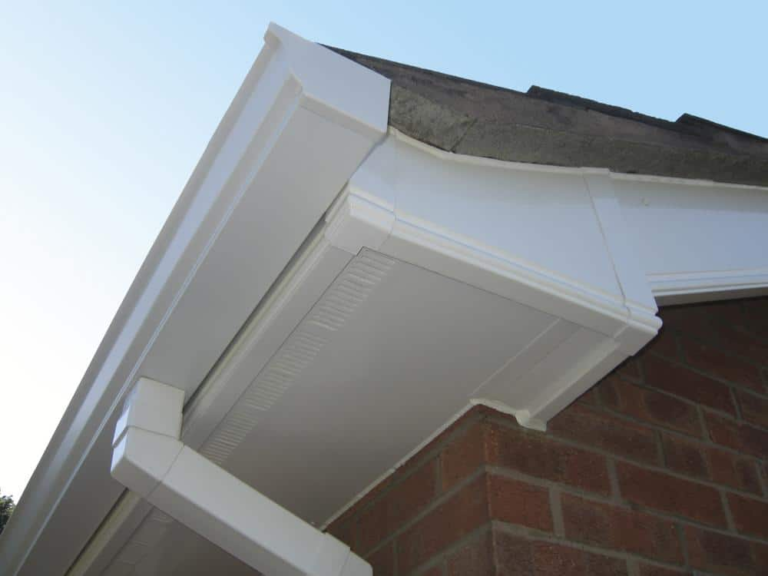The 10 Scariest Things About Fascia And Soffit Specialists
페이지 정보
작성자 Elvera 작성일 25-07-22 15:22 조회 30 댓글 0본문
Understanding Soffit and Cladding: Importance, Types, and Installation
Soffit and cladding are 2 important components of a structure's exterior that often go undetected however play a vital function in both aesthetic appeals and performance. While soffit refers to the product that covers the underside of eaves or overhangs, cladding describes the material applied to the outside of a building to provide it with a protective layer and a visually appealing finish. This detailed article will dive into the types, significance, benefits, installation, and frequently asked questions concerning soffit and cladding.
Significance of Soffit and Cladding
Both soffits and cladding serve substantial functions for construction Fascia And Soffit Specialists architectural style:

Soffit
- Ventilation: Adequate soffit ventilation enables airflow in the roofing area, which assists manage temperature level and humidity, lowering the danger of mold and rot.
- Security: Soffits secure the rafters and eaves from water damage and pest problem.
- Aesthetic Enhancement: Well-designed soffits enhance the general appearance of a structure, supplying a completed appearance to roof overhangs.
Cladding
- Insulation: Cladding helps to insulate the structure, enhancing energy performance by maintaining interior temperature levels.
- Weather Resistance: It protects the building from elements such as rain, wind, and snow.
- Aesthetic Appeal: With a range of products readily available, cladding enables designers to develop visually stunning outsides.
- Maintenance: High-quality cladding lowers the requirement for regular maintenance and repairs.
Types of Soffit and Cladding
Soffit Types
Soffits can be available in various products, including:
- Vinyl: Known for its low maintenance and weather-resistant homes.
- Aluminum: Durable and resistant to deterioration but may damage simpler.
- Wood: Offers visual appeal however requires routine maintenance and treatment for weather condition resistance.
- Fiber Cement: Combines sturdiness with the look of wood, resistant to rot and insects.
Cladding Types
The selection of cladding materials can substantially impact both looks and performance. Common types include:
- Vinyl Cladding: Cost-effective, lightweight, and readily available in numerous designs and colors.
- Wood Cladding: Naturally gorgeous, however demands routine treatment and upkeep.
- Brick: Extremely long lasting and fire-resistant however more pricey and requires professional installation.
- Stone and Stone Veneer: Offers a timeless look and unrivaled sturdiness, perfect for high end homes.
- Fiber Cement: Mimics wood or masonry with a fraction of the maintenance, resistant to weather and pests.
- Metal Cladding: Often used in modern-day styles, provides a commercial appeal and substantially resists weathering.
Comparison of Soffit and Cladding Materials
The following table describes the key functions and qualities of different soffit and cladding products:
| Material | Maintenance | Toughness | Aesthetic Appeal | Expense | Insulation Property |
|---|---|---|---|---|---|
| Vinyl Soffit | Low | Medium | Excellent | Low | Low |
| Aluminum Soffit | Medium | High | Fair | Medium | Low |
| Wood Soffit | High | Low to Medium | Exceptional | Medium | Low |
| Fiber Cement | Low | High | Exceptional | Medium | Medium |
| Vinyl Cladding | Low | Medium | Good | Low | Medium |
| Wood Cladding | High | Medium | Excellent | Medium | Medium |
| Brick Cladding | Low | High | Excellent | High | High |
| Stone Veneer | Medium | High | Excellent | High | High |
| Metal Cladding | Low | High | Fair to Excellent | Medium to High | Low |
Installation of Soffit and Cladding
The installation procedure of soffit and cladding varies depending upon product choice and regional building regulations. Nevertheless, understanding the general steps involved can be useful:
Steps for Installing Soffit
- Preparation: Gather all tools and materials needed, consisting of panels, nails, and security equipment.
- Measurement: Measure the location accurately to cut soffit panels to the appropriate size.
- Ventilation: Ensure proper air flow by integrating vents where essential.
- Installation: Attach the panels beginning with one side, ensuring they fit correctly into the established structure.
- Ending up Touches: Seal any gaps for insulation and visual appeals.
Steps for Installing Cladding
- Framework Setup: Create a robust framework utilizing vertical battens if needed.
- Insulation: If insulating, set up insulation boards before cladding.
- Cutting Panels: Measure and cut cladding panels based on design specs.
- Attachment: Secure panels using suitable fasteners, guaranteeing alignment and level.
- Sealing: Seal joints and edges for weather condition resistance.
Often Asked Questions (FAQs)
1. What is the typical life-span of cladding products?
The lifespan varies commonly amongst products:
- Vinyl: 20-40 years
- Wood: 10-30 years (with maintenance)
- Brick and Stone: 50+ years
- Fiber Cement: 25-40 years
2. Is soffit installation necessary?
Yes, soffit installation is necessary for correct ventilation and protecting the roof structure from weather condition damage, insects, and rot.
3. Can soffit be set up without cladding?
Yes, soffit can be installed individually. Nevertheless, it is usually installed in conjunction with cladding for boosted aesthetics and security.
4. What aspects should be considered when picking cladding?
Essential factors include:
- Desired visual
- Climate factors to consider
- Spending plan constraints
- Maintenance requirements
- Energy effectiveness
5. Can I install soffit and cladding myself?
While DIY installation is possible for those with sufficient skills, hiring specialists guarantees quality craftsmanship and compliance with building regulations.
Soffit and cladding are vital parts of a building's exterior that considerably effect aesthetic appeals, functionality, and energy efficiency. Understanding their types, advantages, and installation processes can assist homeowners and home builders in making notified choices. Whether using vinyl, wood, or fiber cement, picking the right products and ensuring proper installation will improve the longevity and appeal of any structure while preserving its protective qualities.
- 이전글 Exterior Bay Window Installers 101"The Ultimate Guide For Beginners
- 다음글 What's The Job Market For Mental Health Assessment For Trauma Professionals Like?
댓글목록 0
등록된 댓글이 없습니다.